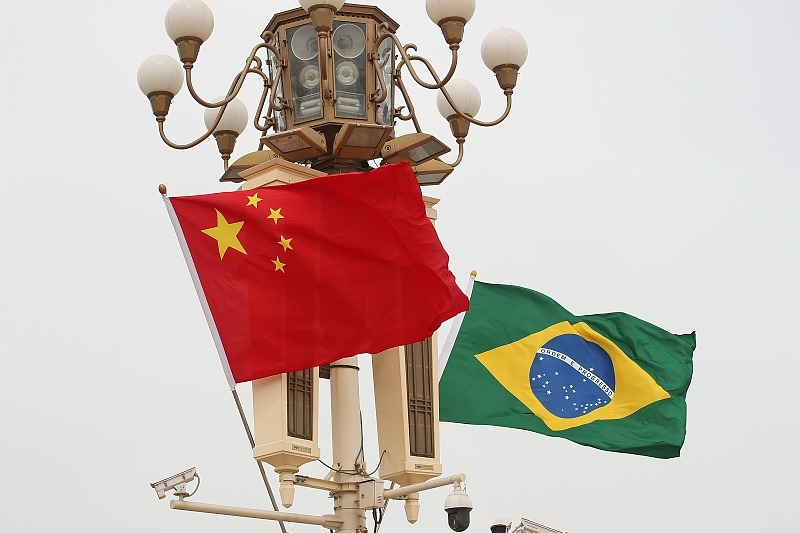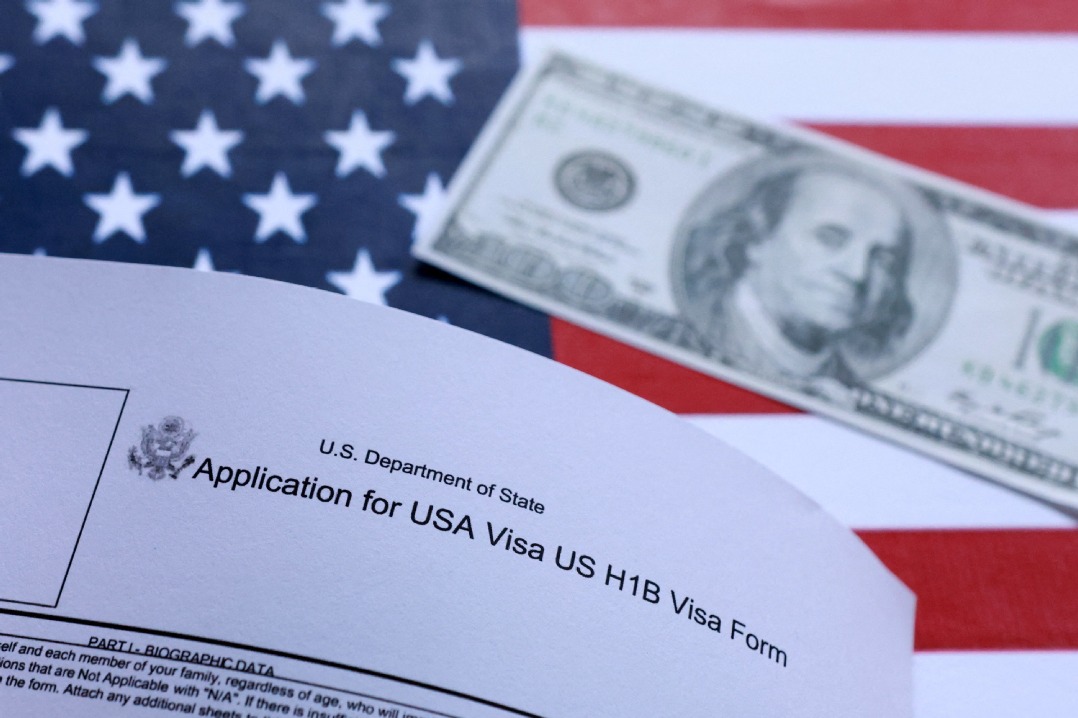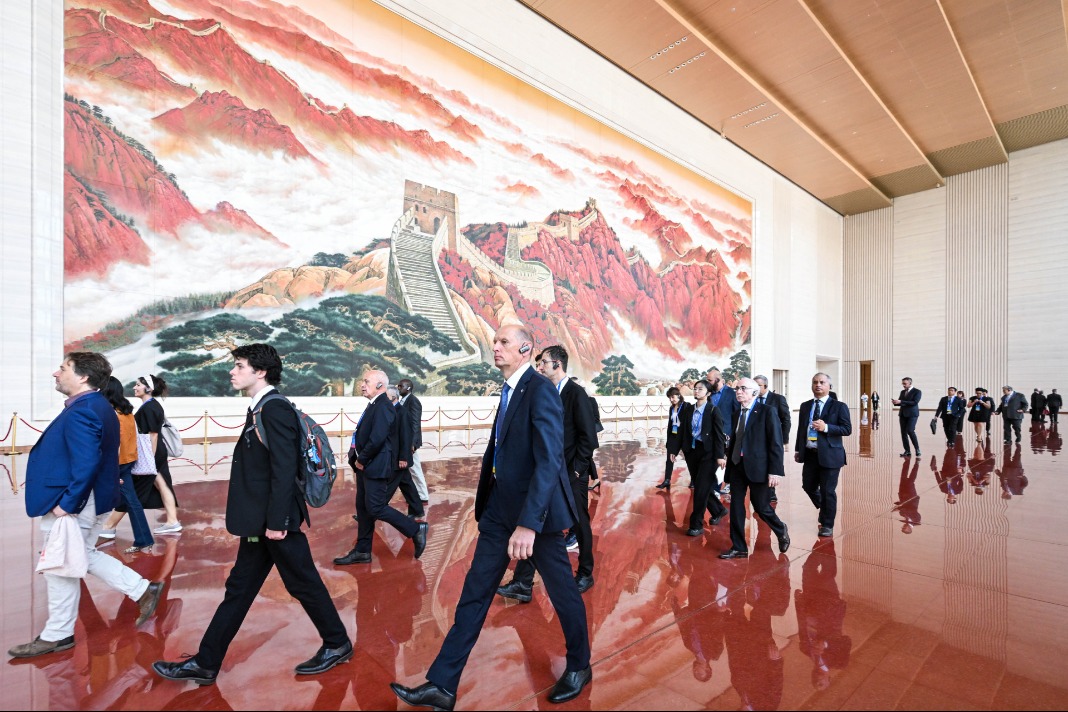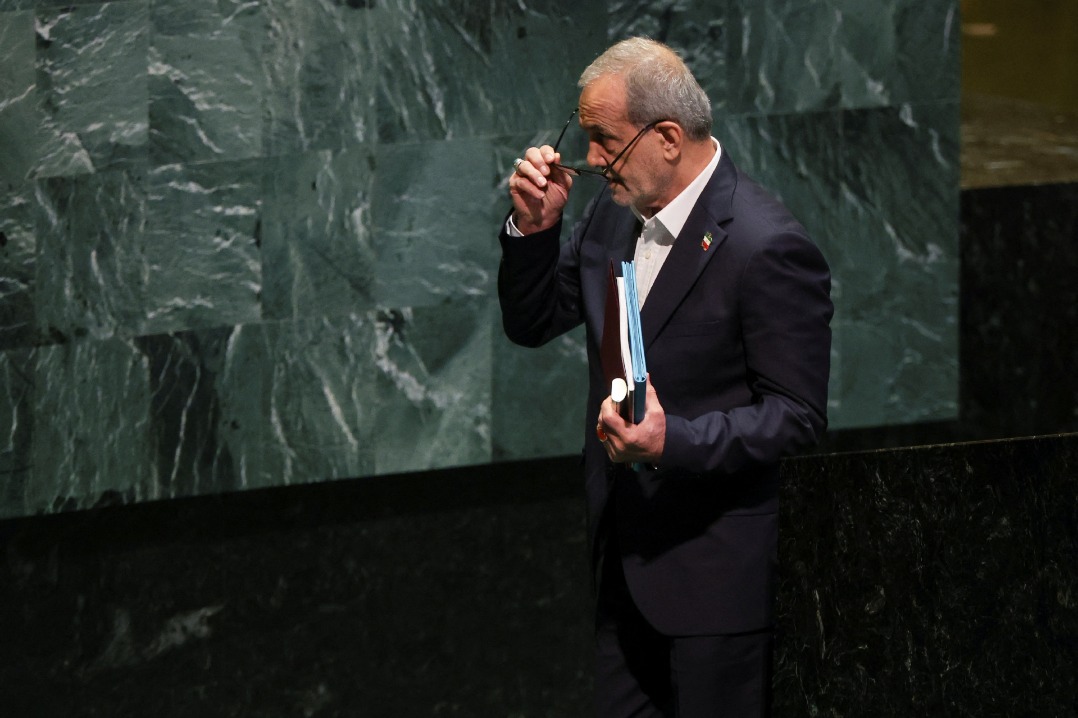Stronger trust yields resilient Sino-EU relations

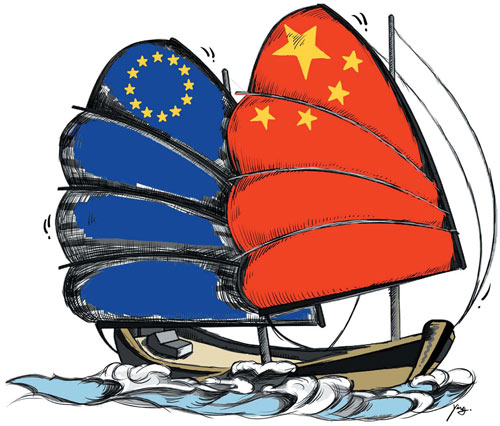
The 25th China-European Union Summit in Beijing on Thursday couldn't have come at a more delicate moment. The world faces rising tensions, growing mistrust and economic protectionism. Yet behind the headlines and political slogans, there is a quieter truth: Europe and China need each other more than ever. Our economies are deeply intertwined. Our challenges — climate, technology, supply chains — are too big for either side to face alone. Despite recent frictions, there's still time to reconnect.
In 2024, trade between the EU and China hit 731.1 billion euros ($856.83 billion), according to Eurostat. That number alone shows how important we are to one another. But trade isn't everything. Over the past few years, direct investments have slowed down, and companies on both sides are finding it hard to trust each other. Some of this is political. Some structural. But the result is the same: We're drifting apart.
Building bridges
It doesn't have to be this way. There are real success stories — European research and development centers in Shanghai, joint ventures in electric mobility, innovative artificial intelligence labs connecting researchers from Berlin in Germany to Shenzhen in Guangdong province. These are not just projects; they're bridges. Now is the moment to build more of them.
First, we need a better investment framework. The EU-China Comprehensive Agreement on Investment — stuck for years — needs a reboot.
Let's call it "CAI 2.0", updated for today's world, with clearer rules on sustainability, digital trade and dispute resolution. Investors don't need perfection; they need clarity and confidence.
Second, let's talk honestly about market access. European companies want to do more in China — in logistics, energy and digital services. Chinese companies seek greater access and opportunities in the European market for their international growth. That's a reasonable ask. But to make it work, we have to move past the idea of "decoupling". Splitting our economies apart is not only unrealistic; it's also dangerous. What we need is smarter interdependence — resilient supply chains, open standards and real opportunities for small and medium-sized businesses.
More than anything, we need courage. It's time for both sides to sit down, drop the rhetoric and co-design a realistic road map for mutual benefit. That means confronting the hard issues, accepting asymmetries and putting long-term goals above short-term pressure.
Third, we have to rethink how we deal with technology. We're both leaders — in different ways — in the fields of artificial intelligence, 5G, clean tech and electric vehicles. But instead of turning technology into a weapon, we should use it as a tool for trust. Imagine joint research labs, shared standards for trustworthy AI, cooperation on cloud infrastructure and quantum computing — though aligning regulatory frameworks and political priorities will require sustained effort. Imagine what we could achieve if we build together instead of drifting apart.
Here's something else we share — the planet. Europe and China have both set ambitious climate goals. That's not just a responsibility we have in common; it's also a powerful opportunity to shape a greener future together. Why not create a "Green Economy Alliance" — a platform for working together on green hydrogen, energy efficiency, smart grids and recycling technologies? We could align our environmental rules, recognize each other's certifications and build shared projects with real impact. A cleaner future isn't just good diplomacy; it's good business.
Boosting connectivity
Connectivity is no longer just about roads and railways; it's also about digital cables, smart ports and trusted data routes. We need better infrastructure between Europe and China — not just to move goods, but to move ideas, services, capital and people. A joint "Smart Connectivity Agenda" could open the door to faster trade, better digital cooperation and a more inclusive economy — especially for startups and small and medium-sized businesses that often get left behind.
That's why we should also launch a "EU-China SME Innovation Platform" — a dedicated mechanism to support cross-border collaboration, access to finance and joint ventures in key sectors such as digital services, advanced manufacturing and green technology. While large corporations dominate headlines, it is SMEs that drive employment, resilience and grassroots innovation. Strengthening their role would make the partnership more dynamic, diverse and future-oriented.
Trust is key
Of course, none of this will happen without trust. And trust doesn't grow in the dark. It grows through transparency, rule of law and shared standards. It means protecting intellectual property, respecting contracts and giving investors — on both sides — reasons to believe in the system.
We talk a lot about companies and governments. But what about people? If we want long-term cooperation, we have to invest in it — not just with money, but with relationships. Let's support student exchanges, joint university programs and youth entrepreneur labs. Let's open up our cultural spaces and fight misinformation with real dialogue. A new "EU-China Talent Initiative" could give the next generation of leaders the chance to shape this relationship — not inherit its problems.
This China-EU Summit must deliver more than just goodwill gestures. The business world is watching. Entrepreneurs, researchers, workers — they all need signals, not slogans. We should walk away from this summit with a clear action plan, a shared road map and a promise to meet again — not once a year, but on a regular basis, ensuring continual review and concrete progress.
This is not just about geopolitics. It's about growth, stability and shared progress. It's about whether we choose to turn inward or move forward — together.
If the last century was shaped by the Atlantic, Eurasia will play a defining role in this one. Europe and China can either build walls or build bridges — digital, green and human.
A new economic pact is not just a policy option; it's a necessity. And the decisions we make this July may well shape the future — for both sides, and far beyond.
The views do not necessarily reflect those of China Daily.
The author is president of ChinaEU, a Brussels-based nonprofit association.


















